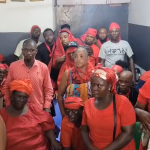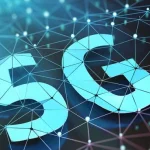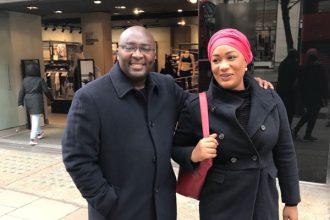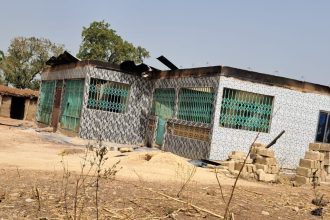President Akufo-Addo has called for collaborative efforts to address Ghana’s economic challenges.
Speaking at a meeting with officials from FNB Bank at the Jubilee House on Tuesday, 15 March 202, Nana Akufo-Addo, emphasized that the government was working to alleviate the plight of Ghanaians but the current situation requires concerted efforts.
He was quick to point out that external factors have hampered the growth of the country which was similar in other economies around the world.
“The difficulties that all of us are going through now are nothing that we have to reemphasize and reiterate. It is obvious, and the source of it is also something that all of us know. It has been different impacts on different economies and countries but the root causes of it are well known. They are matters that we have to also resolve together. I believe that at the end of the day, it is this cooperation across borders in our regions that will give us the strongest base in which to deal with the problems that have emerged in these last two years,” he said.
The Ghanaian economy has seen a lot of challenges attributed to the pandemic and the subsequent Russia-Ukraine conflict.
In March 2021, the Finance Ministry indicated that the government had spent GH¢19 billion on the COVID-19 fight.
There is pressure on the government due to rising public debt, expenditure management and revenue generation constraints.
The situation is compounded by the depreciation of the Ghana Cedi against other major currencies and possible interest rate hikes.
Additionally, crude prices have recently seen an exponential increase to as high as $130 per barrel on the international market from the $90 per barrel region due to supply bottlenecks caused by the Russian invasion.
At the pumps, fuel prices have been predicted to hit GHS11 per little from a region below GHS 8 per little few weeks ago.
In a bid to address revenue shortfalls, the government proposed the introduction of a 1.75% electronic transaction levy which it says will help the country self-finance its development.
The E-Levy is expected to generate an estimated amount of GH¢ 6,96 billion in 2022, GH¢7.89 billion in 2023, GH¢8.92 billion in 2024 and GH¢10.09 billion in 2025.
It is also one of the measures to increase the country’s tax to Gross Domestic Product (GDP) ratio from 13 per cent to 16 per cent.
















